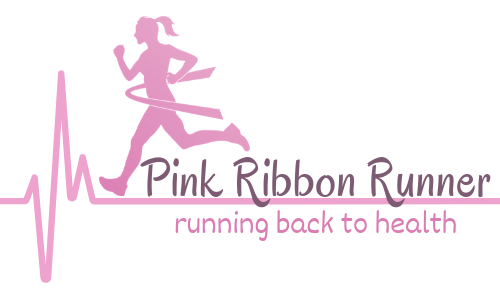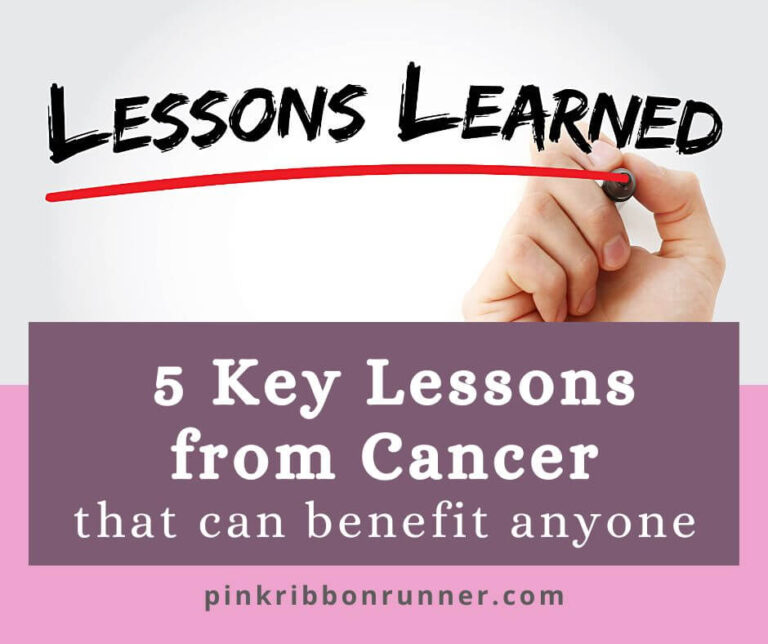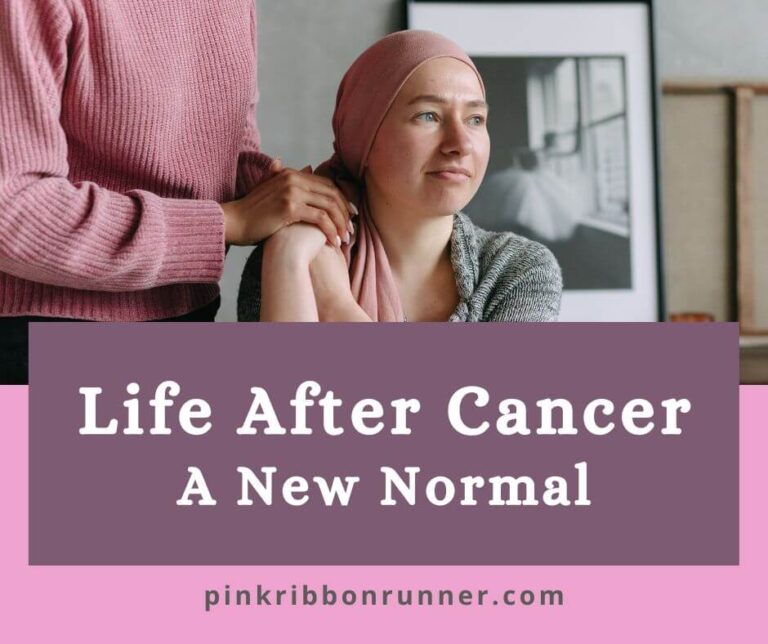Carbohydrates and Cancer: Does Sugar Feed Cancer?
“Does sugar feed cancer?” is likely the number one asked nutrition question by those diagnosed with the disease. Limiting sugar consumption is also likely the biggest dietary advice given. High protein and low carbohydrate diets, such as Ketogenic (Keto), are all the rage. But does eating carbohydrates really cause cancer? And can we starve out tumors by avoiding high carbohydrate foods?
With the help of doctors, dietitians, and recent scientific studies, I took on the huge task of exploring these questions. I wanted to do it for myself, as a breast cancer survivor, to improve my own health. And I wanted to help others know the truth behind “low carbohydrate” diets.
This topic is extraordinarily complex. So, I have written a 3-part series as your guide to Carbohydrates and Cancer. I encourage you to read all three articles to learn the current thoughts from the medical community on this important and fascinating topic.
Part 1: Carbohydrates and Cancer: Does Sugar Feed Cancer?
Part 2: Carbohydrates and Cancer: Does Fiber Fight Cancer?
Part 3: Carbohydrates and Cancer: Are Starchy Foods Linked to Cancer?
What are Carbohydrates?
Carbohydrates, also known as carbs, are macronutrients that your body uses for energy. This group is one of the 3 macros in the foods you eat. The other two are proteins and fats.
Carbohydrate molecules are made up of various configurations of carbon, hydrogen, and oxygen molecules. While most contain sugar molecules, not all carbs are sugars. There are both simple and complex carbs. And you should not necessarily limit all carbohydrates in your diet. Only a select few are bad for you.
Three Categories of Carbohydrates
The three main types of carbohydrates are sugars, starches, and fiber. Let me briefly explain the difference between these before we talk about sugars, specifically.
1.Sugars
Sugars are the simplest form of carbohydrate. This is usually what people refer to when describing “Low Carb” diets.
Sugars can be categorized into monosaccharides (also known as “simple sugars”) and disaccharides.
Monosaccharides, such as glucose and fructose, are the base unit of all carbohydrates.
Disaccharides contain two units of simple sugar. The most common disaccharides are sucrose (table or cane sugar), lactose (milk sugar), and maltose (malt sugar).
2.Starches
Starches are polysaccharide molecules, meaning they contain a string of simple sugars linked together. These are complex carbohydrates and are the primary storage form in plants, including vegetables, legumes, and grains.
Glycogen is the primary complex carbohydrate storage form in animals. Thus, it is also sometimes referred to as “animal starch”. It is stored in your liver and muscle cells. Glycogen is an important energy source that athletes use when working out.
When you eat and chew food, your saliva enzymes start to break most of these starches down into simple sugars. Through digestion, these complex molecules are eventually turned into glucose. Glucose is also known as “blood sugar”, as it is carried through your body in your blood stream.
There are also starches that are not digested and cannot be broken down into glucose molecules. These are called “resistant starches”. These undigested starches ferment in your digestive system to make postbiotic molecules that may be beneficial to your health. Some cooking and processing methods affect the amount of resistant starch in foods.
I talk more about starches in Part 3 of this Guide to Carbohydrates and Cancer
3.Fiber
Fiber is also a complex carbohydrate. Unlike sugar and starches, fiber cannot be broken down into basic sugar molecules. Instead, it ferments in the intestine to produce beneficial compounds that may help fight disease. Fiber also helps with regular bowel movements that get rid of wastes and toxins from the body.
Most unprocessed plant-based foods are rich in beneficial fiber. There is strong evidence that fiber helps prevent obesity, diabetes, and cancer.
I talk more about fiber in Part 2 of this Guide to Carbohydrates and Cancer.
So, as you can see, this topic is immensely complex. Saying you should be on a “low carb diet” is just too simplistic. Before starting any diet, understand what carbohydrates they are recommending you avoid. Talk to your doctor or dietitian before limiting carbohydrates too drastically.
Now, lets talk about sugars, specifically.
What Do Cancer Cells Feed On?
It is no secret that cancer cells get energy from sugar (glucose) molecules. In fact, doctors use this fact to their advantage by tagging glucose molecules with tracers. When these tagged simple sugar molecules are injected into your body, the cancer cells gobble them up. These cells can now light up on images taken by MRI and PET machines telling the doctors where cancer might be in your body.
But, while cancer gets energy from glucose molecules, it does feed on other nutrients in the body. Cancer cells are very actively dividing and multiplying. To do this, they also use protein, fat and micronutrients.
Your healthy cells need all these nutrients too. They also use sugars for energy. Your brain gobbles up sugar like crazy to keep your neurons firing. And your muscles need sugar to keep you moving and doing the recommended 150 minutes of weekly exercise.

Can You Starve Cancer by Eliminating Sugar?
So, no, you cannot starve cancer by avoiding sugar in your diet. I truly wish it were this simple.
Think of it this way… cancer cells are just cells that are behaving badly. They use the same nutrients that all your other healthy cells need too. And if you try to starve your cancer cells, you will also be starving your healthy cells.
However, that does not mean you should be eating all the sugar you want. There is still a link between eating too much sugar and cancer risk. And this has to do with the hormones that sugar triggers in your body.
How Much Sugar Should I Be Eating?
To put it simply, when you digest your food and absorb simple sugars, insulin is released. Insulin helps your body to use and store these sugars. When your blood sugar levels fall back down, insulin is turned off.
However, if you are eating too much sugar too often, your blood sugar stays high. Your pancreas tries to deal with this and makes more and more insulin. Insulin also tells your body to store fat. Over time, this can lead to insulin resistance, metabolic syndrome, obesity, and an increased risk of cancer.
Insulin has been shown to stimulate cancer cells to grow in culture and in laboratory animals. So, having all this insulin floating around in your body is not good for you.
“Recent evidence supports the role of insulin and IGF-1 as important growth factors, acting through the tyrosine kinase growth factor cascade in enhancing tumor cell proliferation. “ – Insulin and Cancer in Integrative Cancer Therapies
So, how much sugar is okay to eat?
According to the World Health Organization, the healthy adult should only be eating 5 to 10% of daily calories in free sugars.
At the lower end of this spectrum, this calculates out to approximately 25 grams (6 teaspoons) for the average adult person. For reference, one can of soda may contain 10 teaspoons of sugar and 1 tablespoon of ketchup might contain 1 teaspoon of sugar.
Can I substitute for Natural Sugars?
It isn’t just table sugar that spikes your insulin, natural sugars do this too. Once digested, these too become simple sugars. So, it doesn’t matter if it is honey, coconut sugar, pure maple syrup, raw cane sugar, or fruit juice. Once digested, it is all processed the same way and triggers insulin release.
However, there is one difference between natural sugars and table (white) sugar. Granulated white sugar is refined and purified to become sucrose, a disaccharide, and not much else. But, some of the natural sugars might also contain other nutrients that may have health benefits.
For example, whole fruit contains vitamins, minerals, and antioxidants to support your immune system. The fiber in whole fruit can also moderate the effects of fruit sugar in your body. Honey also contains some anti-inflammatory and anti-bacterial compounds. And while maple syrup is low in most nutrients, it does contain some extra minerals that table sugar does not. So, if you must eat something sweet, make that sugar as beneficial as you can by eating more natural forms of it.
But even these natural sugars should be consumed in moderation. Remember, the link between sugar and cancer is a result of eating too much sugar, any sugar, over time.

Should Cancer Patients Avoid Sugar?
What if you have already been diagnosed with cancer? Should you stop eating sugar and switch to a low carb diet now? There are no studies to suggest that reducing sugar will shrink tumors or that eating it will make cancer worse.
Cancer takes a long time to form. Some cancers can take 30 to 40 years to develop. So, avoiding sugar now is not likely to help with the cancer you currently have.
“Although research has shown that cancer cells consume more sugar (glucose) than normal cells, no studies have shown that eating sugar will make your cancer worse or that, if you stop eating sugar, your cancer will shrink or disappear,” according to the National Cancer Institute.
Does that mean you should go to town and eat all the sweets? No, it does not. You still should only eat sugary foods in moderation to keep your risk of recurrence as low as you can. Controlling sugar consumption and eating wholesome foods are still important healthy habits.

What If You Crave Sugar during Cancer Treatments?
Some cancer patients crave sweets during treatments. Chemotherapy seems to alter taste and appetite for many patients. And sometimes this leaves you craving sugary foods. Some of the steroids your doctor might prescribe are notorious for this. And your body and brain may be wanting an energy boost, since cancer treatments can make you very tired.
Since eating sugar won’t affect your treatment outcome, it is likely okay to satisfy these cravings with a little sweet treat. Just realize that extra sugars can lead to weight gain, especially if your aren’t able to exercise, and other health issues. Try to find healthier choices, such as fruit, to satisfy those cravings. And balance it out with more fiber or protein, if you can. And when your treatments are done and these cravings subside, eat a healthy and balanced diet.
Be sure to ask your oncologist or cancer care dietitian about your specific nutritional needs.
I hope you found this information on Sugars and Cancer helpful. I look forward to exploring the other carbohydrates with you in Part 2 (Fiber) and Part 3 (Starches) in this series.
Perhaps you might be interested in these other articles…
Dietary Fiber: Are You Eating Enough?









This post had loads of helpful information. This reminds me that I need to lessen my current sugar intake and finally purchase more natural sweeteners as intended. But even those, need to be consumed in moderation. Thanks for sharing!
This is a great post that I am glad you posted! Very helpful information. Thank you.
Thanks for this article. You explained the sugar/cancer connection in a way that was easy to understand.
GREAT info! As a Family Nurse Pracitioner, I preach this daily……even though I will admit I can be guilty myself with my homemade cookie dough from time to time. I am also happy to collarborate if ever want to!
Thank you so much for this explanation of this common myth. Cancer affects so many people, and it’s no surprise that there are misconceptions that people try to live by thinking it’s helping when it’s more complicated than that.
This was very intriguing. Unfortunately cancer runs a lot in my family so this was a big informative read for me. Thank you for the breakdown of the relationship between the two , need to pass this on for sure
Thank you for this thorough and informative post on the relationship between sugar and cancer. I learned so much and also cleared up some misconceptions.
Great post. I think everyone has heard the rumor that sugar is correlated with disease, but the messages about that are definitely mixed. This is a great explanation.
This is SO well written and informative! Thank you for sharing this!
This is a common question in oncology nutrition. Thank you for addressing it and sharing what you’ve derived from research and medical professionals!
This was so informative. I love reading what certain foods can do to the body.
I am glad you found it helpful. I completely agree.. how foods work in the body is so fascinating.
I was not expecting you to be soo technical! Love and appreciate. Also makes me feel like I SHOULD take a break from Youtube,so I can get such insightful news like this one! Loved it … and actually A good reminder for myself.
Was it too technical? Like I said, this is such a complex issue. I hope it made sense. I am glad you found it insightful.
Such an interesting read! There are so many myths and questions floating around about cancer that it’s hard to know what to listen to. Sending this to my MIL who’s going through treatment right now.
Thank you for sharing. I hope your MIL does well with her treatments.
thanks for sharing this information giving more knowledge about the role of sugar and how it can affect us if consumed too much
I am glad you liked it and hope you find it helpful.